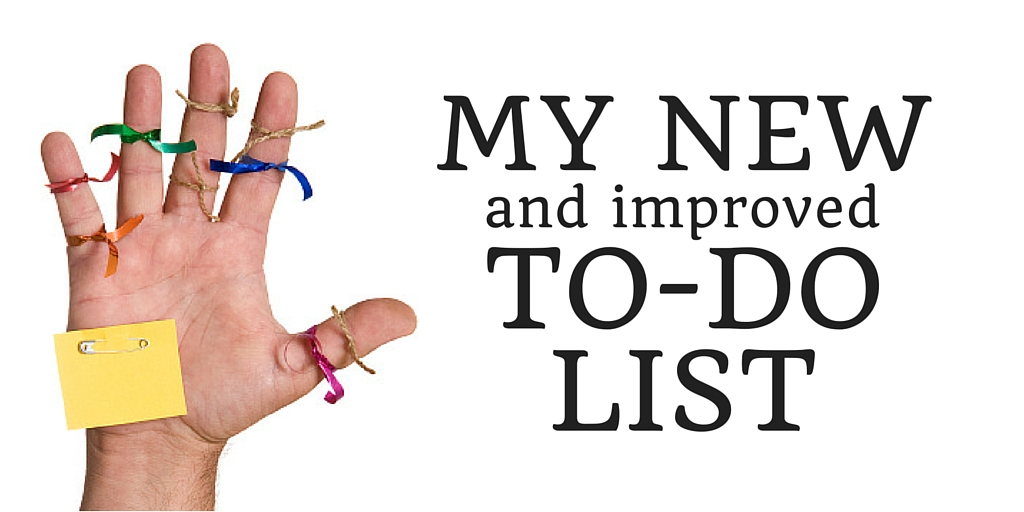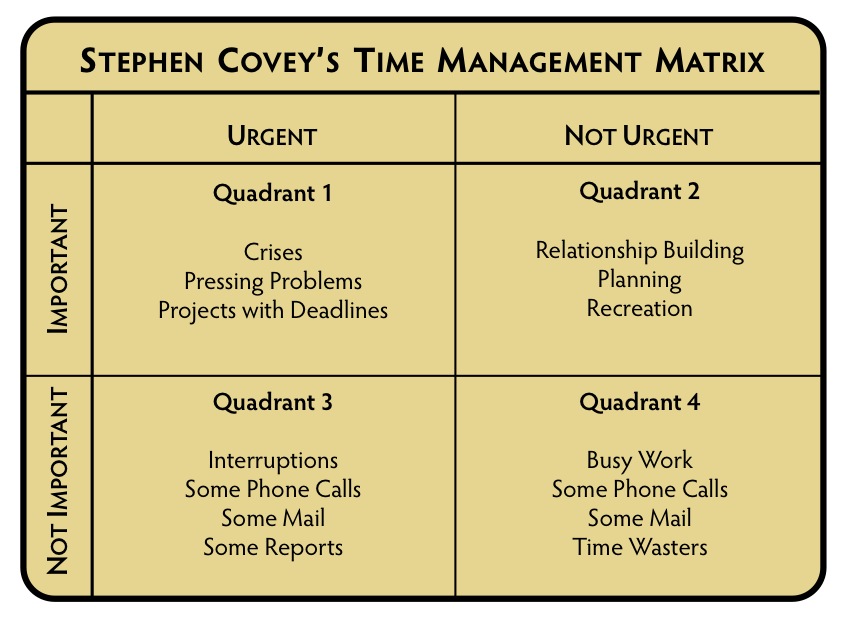My New and Improved To-Do List
 Every person has their preferred way of keeping their to-do list, but what most systems don’t have is a way of defining what item gets priority. Is your list arranged by importance, deadlines, or what’s easiest to do? The danger of not accounting for priority is that you might think you had a productive day, when you actually didn’t gain any ground on your most important assignments.
Every person has their preferred way of keeping their to-do list, but what most systems don’t have is a way of defining what item gets priority. Is your list arranged by importance, deadlines, or what’s easiest to do? The danger of not accounting for priority is that you might think you had a productive day, when you actually didn’t gain any ground on your most important assignments.
I recently adopted a new way of tracking my tasks that is based on Stephen Covey’s third habit in his popular book called The 7 Habits of Highly Effective People. In order to “put first things first” Covey suggests using four quadrants to organize your responsibilities. I have been familiar with this concept for years, but had assumed his method worked best for big picture thinking and large project management. What I have found is that it works just as effectively for weekly to-do lists.
Covey’s Time Management Matrix captures how people spend time. The two defining factors are urgency and importance. Urgent matters require immediate attention, such as an approaching deadline or a ringing phone. Urgent things are usually visible and they act on us.
Conversely, importance has to do with results. You can be assured that something is important if it contributes to your mission or the goals that have been given highest priority.
As a general rule, we react to urgent matters, but important matters require us to act.
Take a look at the four quadrants below and think about how much time you spend in each quadrant.
 Here is Covey’s overarching principle: “Effective people stay out of Quadrant 3 and 4 because, urgent or not, they aren’t important. They also shrink Quadrant 1 down to size by spending more time in Quadrant 2.”
Here is Covey’s overarching principle: “Effective people stay out of Quadrant 3 and 4 because, urgent or not, they aren’t important. They also shrink Quadrant 1 down to size by spending more time in Quadrant 2.”
But how can we do this? It wouldn’t be healthy to radically alter your approach to time management overnight, but there are gradual steps you can take to use your time more effectively.


